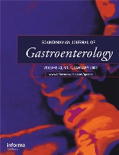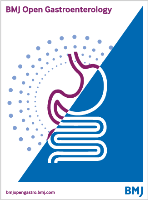
Indian Journal of Gastroenterology
Scope & Guideline
Exploring Innovations in Gastroenterology
Introduction
Aims and Scopes
- Gastrointestinal Disorders & Diseases:
The journal covers a broad spectrum of gastrointestinal disorders, including but not limited to liver diseases, inflammatory bowel diseases, gastrointestinal cancers, and functional gastrointestinal disorders. - Endoscopic Techniques and Innovations:
There is a strong emphasis on endoscopic techniques, including advancements in endoscopic surgery, therapeutic endoscopy, and the application of new technologies such as artificial intelligence in endoscopic procedures. - Clinical Research and Trials:
The journal encourages clinical research, particularly studies that evaluate the efficacy and safety of new treatments, pharmacological interventions, and patient outcomes in gastroenterology. - Nutritional and Metabolic Aspects:
Research focusing on the nutritional aspects of gastrointestinal diseases, including dietary interventions for conditions like inflammatory bowel disease and obesity, is a significant area of interest. - Public Health and Epidemiological Studies:
The journal often publishes studies related to public health issues, including epidemiology of gastrointestinal diseases, particularly in the Indian context, highlighting regional health challenges and solutions.
Trending and Emerging
- Artificial Intelligence in Gastroenterology:
The integration of artificial intelligence in diagnostic and therapeutic processes is a rapidly emerging theme, with studies exploring its application in endoscopy and patient management. - Nutritional Interventions for Disease Management:
There is a growing focus on the role of nutrition in managing gastrointestinal diseases, particularly in inflammatory bowel disease and obesity, reflecting a broader understanding of the gut's relationship with dietary habits. - Longitudinal Studies on Inflammatory Bowel Disease:
Emerging trends include extensive longitudinal studies that track the progression and management of inflammatory bowel diseases, providing valuable insights into treatment outcomes and quality of life. - Telemedicine and Remote Monitoring:
The rise of telemedicine, especially in the context of the COVID-19 pandemic, is reflected in recent publications that explore its effectiveness in managing gastrointestinal disorders and follow-up care. - Multidisciplinary Approaches to Care:
There is an increasing emphasis on multidisciplinary approaches to care, highlighting the collaboration between gastroenterologists, nutritionists, and mental health professionals in managing complex gastrointestinal conditions.
Declining or Waning
- Traditional Pharmacological Approaches:
There is a noticeable decline in studies focusing on traditional pharmacological treatments for gastrointestinal diseases, possibly due to the increasing interest in personalized medicine and novel therapeutic approaches. - Surgical Interventions:
Research centered on conventional surgical interventions for gastrointestinal conditions is less frequent, as the focus shifts towards minimally invasive techniques and endoscopic alternatives. - Basic Science Research:
Papers emphasizing basic science research related to gastroenterology are becoming less common, suggesting a shift towards translational research and clinical applications. - Single-Center Studies:
The prevalence of single-center studies is diminishing as the journal increasingly favors multicenter trials and collaborative research efforts that provide more extensive data and insights. - Case Reports of Rare Conditions:
There has been a decrease in the publication of case reports detailing rare gastrointestinal conditions, potentially due to the journal's focus on broader epidemiological and clinical studies.
Similar Journals

Gastroenterology Research and Practice
Elevating Standards in Gastrointestinal ResearchGastroenterology Research and Practice is a leading Open Access journal dedicated to advancing the field of gastroenterology and hepatology. Published by HINDAWI LTD, this journal offers a platform for researchers, clinicians, and healthcare professionals to share their findings and insights on cutting-edge topics in digestive health. With an ISSN of 1687-6121 and an E-ISSN of 1687-630X, it has established its significance within the academic community, evidenced by its ranking in the 2023 Scopus metrics, where it is positioned in the third quartile for both gastroenterology and hepatology disciplines. The journal is recognized for disseminating high-quality, peer-reviewed articles that contribute to the understanding of gastrointestinal disorders, therapeutic advancements, and innovative practices. Since its inception as an Open Access journal in 2008, Gastroenterology Research and Practice has removed barriers to access, ensuring that vital research reaches a global audience. This ongoing commitment to increasing accessibility, alongside its continuous publication from 2009 to 2024, underscores its importance as a resource for the academic and clinical communities striving to improve patient outcomes in digestive diseases.

JOURNAL OF GASTROENTEROLOGY AND HEPATOLOGY
Transforming understanding of gastroenterology and hepatology.Welcome to the JOURNAL OF GASTROENTEROLOGY AND HEPATOLOGY, an esteemed publication in the field of gastroenterology and hepatology, proudly published by WILEY. Established in 1986, this journal serves as a crucial platform for researchers, healthcare professionals, and students, presenting groundbreaking research and comprehensive reviews that drive advances in understanding and treating gastrointestinal and liver diseases. With a strong reputation evidenced by its Q1 ranking in gastroenterology and Q2 ranking in hepatology, this journal ranks impressively in the Scopus metrics - positioned at #22 out of 167 in gastroenterology and #21 out of 82 in hepatology, reflecting its contribution to scholarly excellence. Although it does not offer open access options, the journal’s rich archive and diverse topics make it indispensable for those dedicated to improving patient outcomes in these critical areas of medicine. Whether you are a seasoned researcher or an aspiring medical professional, engaging with this journal will keep you at the forefront of the latest developments and emerging trends in gastroenterology and hepatology research.

Best Practice & Research Clinical Gastroenterology
Enhancing Patient Outcomes through Best Practices in GastroenterologyBest Practice & Research Clinical Gastroenterology is a leading journal in the field of gastroenterology, published by Elsevier Science Ltd, that aims to disseminate high-quality research and evidence-based guidelines for clinical practice. With an impressive impact factor and ranked in the top tier (Q1) of gastroenterology journals as per Scopus, it is recognized for its critical role in advancing knowledge and best practices in clinical settings. The journal is published biannually with content that spans a wide array of topics affecting the gastrointestinal tract, and it encourages contributions from researchers and professionals who seek to enhance their understanding and improve patient care. It's accessible in both subscription and open access formats, allowing for a broad audience engagement and dissemination of pivotal research findings. Since its inception in 1999, Best Practice & Research Clinical Gastroenterology has served as a vital resource for clinicians and academics alike, contributing significantly to improvements in gastroenterological health.

Frontline Gastroenterology
Bridging Research and Practice in Digestive DisordersFrontline Gastroenterology is a leading academic journal published by the BMJ Publishing Group that plays a vital role in advancing the field of gastroenterology and hepatology. Established in 2013, this prestigious journal has established itself as a significant resource for researchers, healthcare professionals, and students alike, maintaining a commendable impact factor and consistently achieving a Q2 ranking in both gastroenterology and hepatology categories as of 2023. With its focus on disseminating high-quality, peer-reviewed research, Frontline Gastroenterology covers a wide scope of topics pertinent to the understanding, diagnosis, and treatment of gastrointestinal and liver diseases. Although it does not offer Open Access options, its content is accessible through various institutional and personal subscriptions, ensuring that critical findings reach an international audience. As the journal continues to converge into the future, it remains dedicated to fostering innovation and dialogue in gastroenterological sciences.

Pediatric Gastroenterology Hepatology & Nutrition
Exploring the frontiers of gastroenterology and nutrition in children.Pediatric Gastroenterology Hepatology & Nutrition is a pivotal academic journal published by the Korean Society of Pediatric Gastroenterology & Nutrition, focusing on the critical fields of pediatric gastroenterology, hepatology, and nutrition. Located in South Korea, this journal aims to disseminate high-quality research, review articles, and clinical studies to advance knowledge and practice in the care of children with gastrointestinal and nutritional disorders. With a Converged Years span from 2012 to 2024 and categorized in the Q2 and Q3 quartiles in 2023 across multiple related fields, the journal holds a significant position within the academic community, reflecting its impactful contribution to the discipline. Although currently not open access, the journal ensures that content is accessible to a broad audience through various institutional subscriptions. The journal appeals to researchers, healthcare professionals, and students alike, providing an essential platform for the exchange of innovative ideas and research findings aimed at improving pediatric patient care.

JOURNAL OF GASTROENTEROLOGY
Innovating insights for improved patient outcomes.JOURNAL OF GASTROENTEROLOGY, published by SPRINGER JAPAN KK, is a premier academic journal that has been at the forefront of gastrointestinal research since its inception in 1994. With an impressive Impact Factor and ranking in the top quartile (Q1) of its category, this journal holds a significant place in the field of gastroenterology, currently ranked 12th out of 167 in Scopus, placing it in the 93rd percentile. The journal serves as an essential platform for disseminating innovative research, clinical studies, and reviews that foster advancements in the understanding and treatment of gastrointestinal diseases. Although it does not offer Open Access options, it provides researchers, clinicians, and students access to crucial insights and breakthroughs pivotal to improving patient care and outcomes in gastroenterology. With a commitment to high-quality peer-reviewed content, JOURNAL OF GASTROENTEROLOGY plays a vital role in shaping the future of gastrointestinal health and research.

Gastroenterology Research
Transforming patient care with cutting-edge studies.Gastroenterology Research is a prominent scholarly journal dedicated to advancing the field of gastroenterology. Published by ELMER PRESS INC, this journal serves as a vital platform for disseminating innovative research, clinical findings, and comprehensive reviews that explore the complexities of the gastrointestinal system. With an ISSN of 1918-2805 and an E-ISSN of 1918-2813, it reaches a global audience of researchers, healthcare professionals, and students eager to contribute to or keep abreast of the latest developments in gastroenterology. Though details such as the H-index and Scopus rankings are currently unspecified, the journal's commitment to quality and impact in the medical research community is evident. Gastroenterology Research aims to foster collaboration and knowledge sharing among experts, ultimately improving patient care and outcomes within this critical area of health science. Explore the cutting-edge studies published within its pages and engage with a community passionate about the investigation and treatment of gastrointestinal diseases.

Clinical and Experimental Gastroenterology
Fostering knowledge and innovation in gastrointestinal research.Clinical and Experimental Gastroenterology is a prestigious Open Access journal published by DOVE MEDICAL PRESS LTD, dedicated to advancing the field of gastroenterology through rigorous research and innovative insights. With its ISSN 1178-7023, the journal has established a significant presence since its inception in 2008 and has been actively contributing to the academic landscape from New Zealand. The journal has attained a commendable Q2 rank in the Gastroenterology category as of 2023, placing it in the upper-tier percentile of similar journals. It currently ranks #57 out of 167 in the Scopus database, highlighting its relevance and impact in the field at the 66th percentile. Encompassing a wide range of topics within gastroenterology, the journal aims to foster discussion and disseminate findings that enhance clinical practices and patient care. Researchers, healthcare professionals, and students alike will find this journal an invaluable resource for cutting-edge research and developments in gastrointestinal health.

SCANDINAVIAN JOURNAL OF GASTROENTEROLOGY
Illuminating the Complexities of Gastrointestinal DiseasesSCANDINAVIAN JOURNAL OF GASTROENTEROLOGY, published by Taylor & Francis Ltd, is a leading journal in the field of gastroenterology, dedicated to advancing clinical and experimental research related to digestive health. With an ISSN of 0036-5521 and an E-ISSN of 1502-7708, this journal provides a platform for high-quality research that addresses the complexities of gastrointestinal diseases. Since its inception in 1966, the journal has consistently contributed valuable insights and is currently categorized in the Q2 quartile of gastroenterology journals, reflecting its impact and relevance in the field, with a Scopus rank of 87 out of 167 in Medicine - Gastroenterology. Researchers and practitioners are encouraged to explore the journal's archives to enhance their understanding and stay abreast of innovative strategies for managing gastrointestinal disorders. The SCANDINAVIAN JOURNAL OF GASTROENTEROLOGY remains a crucial resource for those committed to improving patient outcomes through rigorous scientific inquiry and the sharing of impactful findings.

BMJ Open Gastroenterology
Driving Innovation in Gastroenterology, One Study at a TimeBMJ Open Gastroenterology is a premier open access journal published by the esteemed BMJ Publishing Group, focusing on the dynamic and evolving field of gastroenterology. Established in 2014, the journal has rapidly ascended in stature, reflected in its impressive 2023 Q1 ranking in gastroenterology and its position within the top 25% of journals in the category according to Scopus. With a mission to disseminate high-quality, peer-reviewed research with global significance, the journal provides a vital platform for researchers, professionals, and students alike to share their findings and advancements in gastrointestinal medicine. Operating from its headquarters in London, England, the journal's open access format ensures wide visibility and accessibility of cutting-edge research, making it an invaluable resource for those dedicated to improving patient care and driving innovation in gastroenterological sciences. By engaging with this journal, contributors and readers can stay at the forefront of critical developments in the field, fostering a collaborative environment for knowledge exchange.